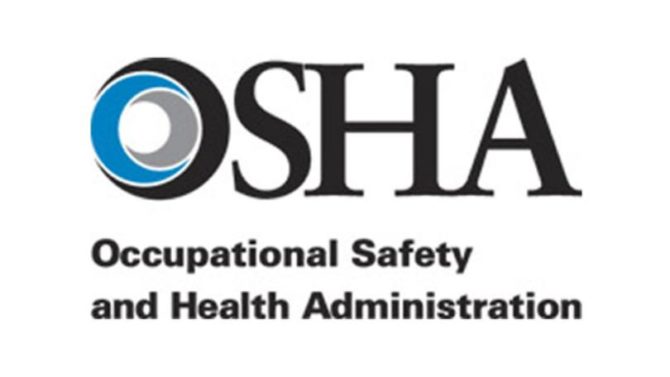
Death of a Trimmer: A cannabis worker’s death went unnoticed for months. Now it’s raising alarms in the industry.
When occupational asthma killed Lorna McMurrey, it should have set off alarms industrywide. But nobody spoke up for eight months, even as thousands of cannabis workers were—and continue to be— exposed to similar risks every day.
The Jan. 7, 2022, death of Trulieve employee Lorna McMurrey in Holyoke, Massachusetts, marked one of the first known work-related fatalities in the legal cannabis industry. Leafly is marking the one-year anniversary of her passing with “Death of a Trimmer,” an investigative series that raises troubling questions about worker safety in the legal marijuana industry.
Part One chronicles Lorna McMurrey’s life, tragic death, and the aftermath of the incident. Part Two, published tomorrow, will examine the emerging hazards of cannabis work and the urgent need for safety measures in an industry still in its infancy.
When Lorna McMurrey took a job at a marijuana production facility in Holyoke, Massachusetts, it was a central cog in her plan to level up her life.
Legal cannabis wasn’t an idly chosen profession: McMurrey was a proud consumer, and was genuinely interested in the process of how marijuana is grown, processed, and sold, says her stepfather, Dave Bruneau.

She hoped the job with Trulieve—the nation’s largest cannabis company—would help her take the next steps toward a fully independent life. The regular paycheck would allow her to buy a car, get out from under her parents’ roof, and move into an apartment with friends.
At 27, she was a bit of a late bloomer, having briefly dropped out of high school before going back to earn her degree. “She raised a little hell,” Bruneau says, “but she was a good kid.”
The job was great, except…
She loved the job, Bruneau recalls, except for one issue: Toward the end of 2021 she was having trouble with the dust in the air from the dried and broken-down flower going into the pre-rolled joints she was assembling.
In November 2021, McMurrey posted on Facebook about an incident that left her gasping for air:
Three weeks later McMurrey followed up with a post that read: “I work around pounds of weed everyday. And when I do pre-rolls all the grounded bud and kief in the air triggers the asthma I didn’t know I had. But I’m hoping it’ll just heal itself or something.”
In late December 2021, she texted her stepfather to ask that he bring home one of the N95 masks he wore on his job as a welder so that she could use it at work.
But even wearing a mask, McMurrey’s issues with airborne kief (cannabis dust) mounted, causing her difficulty in breathing.
Collapsed during her shift
Part of the way through her shift on January 7, 2022, Lorna McMurrey collapsed.
Three Trulieve employees performed CPR on her. Then she was taken to Baystate Medical Center, seven miles away in Springfield. But by the time Bruneau and Lorna’s mother, Laura, arrived at the hospital, doctors informed them that she was brain dead.
Lorna McMurrey passed away that night.

A wake-up call for the cannabis industry
Lorna McMurrey’s death was one of the legal cannabis industry’s first on-the-job fatalities, and the incident at Holyoke should be a wake-up call for the entire cannabis industry.
For years, the annual Leafly Jobs Report has documented the rise of America’s greatest job-creation engine. As of 2022, more than 428,000 people made their living in this rapidly expanding $25 billion industry.
In the ten years since the first legalization laws passed in Colorado and Washington, companies and state regulators have focused on consumer product safety, cannabis track-and-trace systems, the prevention of underage use, and stamping out the illicit market.
But there hasn’t been a whole lot of concern for the health and safety of the workers who make the entire $25 billion engine run.
In part, that’s because the industry is so new that many aren’t aware of the risks that exist in the field, the grow room, the trimming station, the product line, and the sales floor.
Related
The US cannabis industry now supports 428,059 jobs
Lorna McMurrey died from a health hazard that was known to some old-timers in the cannabis world, but unknown to most newcomers. Regulators in some legal states were aware of the risk, but that information never made it to regulators in other legal states. Workers, managers, and owners are too often under-informed and untrained in safety protocols—if those protocols even exist.
Beyond the profound loss suffered by McMurrey and her family, friends, and co-workers, the incident raises compelling questions for the entire industry. What are the health risks of working with cannabis? Is enough being done to protect the safety of cannabis workers?
And why did eight months pass before anyone raised a public alarm about Lorna McMurrey’s death?
More cannabis worker safety resources
‘Occupational asthma’ triggered by cannabis dust
The death certificate from the Commonwealth of Massachusetts lists Lorna McMurrey’s cause of death as cardiac arrest and respiratory arrest, Bruneau says, along with “presumed severe asthma attack.” Officials from the federal Department of Labor’s Occupational Safety and Health Administration (OSHA) determined in their investigation the cause was “occupational asthma due to exposure to ground cannabis” dust.
The last part of that phrase—exposure—deserves extra emphasis, says an emotional Bruneau. Lorna hadn’t had any noticeable lung issues before. “She didn’t smoke cigarettes,” Bruneau says, “and as far as I know, that kid didn’t have asthma. I lived with this person, all right? I mean, I’m sitting next to her fucking bedroom.”
Little realization of the risk in a new industry
Occupational asthma, also known as workplace-induced asthma, is a common hazard in many industries. Airborne particulates can exacerbate an existing asthmatic condition or induce asthma in a person who hasn’t previously experienced the condition.
Occupational asthma isn’t exactly a newly discovered hazard. Lung damage triggered by flour dust has been a recognized health risk in the baking industry since the 1700s. Wood dust is a known lung hazard in the lumber industry. Cotton dust is known to cause long-term lung damage in textile mill workers.
But Lorna McMurrey, like most cannabis workers, appeared not to have known that inhaling cannabis dust could lead to a life-threatening asthma attack.

Why didn’t we hear about her death sooner? Why does it matter?
The death of a worker in a facility producing cannabis products seems like important news—especially to other workers spending their days in an environment similar to the one that triggered McMurrey’s asthma attack.
But in the weeks and months that followed, the public heard nothing about it.
Federal law requires all employers to report a job-related hospitalization or death to the federal Occupational Safety and Health Administration (OSHA) within 24 hours. Trulieve properly notified OSHA, which sent an inspection team out to Holyoke. The company also gave proper notification to the Massachusetts Cannabis Control Commission (CCC).
OSHA inspectors levy a fine, but make no public announcement
Four days after McMurrey’s death, federal OSHA investigators swept through the Holyoke facility. But their report on the incident wasn’t published for nearly six months.
On June 30, 2022, OSHA Area Director Mary E. Hoye notified Trulieve that the company would be fined $35,219 for, among other things, failing to provide their employees with effective information and training about the hazards of cannabis dust, how to prevent exposure, and what signs to look for as early warnings (including coughing and shortness of breath).
Despite the seriousness of the hazard—McMurrey died, after all—OSHA officials declined to issue a news release about the agency’s findings.
That was unusual. It’s normal practice for OSHA’s national media office to publish a press release about noteworthy cases. In fact, the agency pushes out 15 to 30 releases every month. In June and July 2022, it notified the public about cases involving the death of a roofing contractor in Houston; a fatal fall at a frozen food factory in New Jersey; finger amputations at a pillow factory in Georgia; and a drowning death at a golf course pond in Florida.
But there was no media release about the death of a worker due to cannabis dust inhalation at the Trulieve facility in Massachusetts.
The OSHA fine was listed deep within a publicly searchable agency database, but if you’re not looking—and there’s no reason you would—you’d never know. Officials at the federal agency never made an effort to spread information about the incident and the significant health risks it revealed.
Massachusetts regulators: Silent on the issue
The Massachusetts Cannabis Control Commission, the state agency charged with regulating the industry, was already investigating the Trulieve facility over worker-safety issues (as a result of previous worker complaints) when McMurrey died.
But after Trulieve notified the CCC about her death, the commission issued no public statement regarding the incident, what caused it, or why the state’s thousands of cannabis workers should be aware of the potential health risks involved with cannabis dust.
A commission spokesperson later explained that this was because the case remained under investigation. But months passed. And with its silence, the CCC neglected its duty to inform workers about a major health and safety concern.
Lorna McMurrey’s untimely death may have remained largely unknown, in fact, if not for Danny Carson, one of her former co-workers at the Holyoke facility.
Months later, a local podcaster broke the news
Months after McMurrey’s death, Carson posted about the incident on his personal Facebook page. Kim Napoli, an attorney who serves on the state’s Cannabis Advisory Board, happened to see the post. (The 25-member advisory board acts as a kind of consulting body for the five-member Cannabis Control Board, which actually sets policy and enacts rules.) Napoli mentioned the incident to Mike Crawford, who hosts a podcast about Massachusetts politics and local affairs called The Young Jurks.
Crawford dug up the OSHA report and invited Carson, Bruneau, and others onto his show to talk about what happened. Those podcast episodes, which began on Sept. 25, sparked follow-up stories in both cannabis industry outlets and mainstream media.

Trulieve responds
Suddenly, stories about McMurrey’s death popped up all over. In October, the company addressed the incident more fully. Trulieve officials issued a statement that pushed back against what they characterized as “false reporting” about the incident:
- Trulieve said it maintained air quality in its Holyoke facility by deploying “appropriate industrial air handling systems designed to frequently exchange and filter indoor air,” and had a “special industrial air filtration system that exchanges the air in the grinding room and has been certified by an independent engineer.”
- The company said it provides N95 masks to the 175 employees at the Holyoke facility.
- Trulieve said Lorna McMurrey wore an N95 mask for at least part of her shift on January 4. The company also asserted that when McMurrey told her supervisor she wasn’t feeling well, she was given the option to take the day off with pay, but she refused and continued working. Trulieve followed “appropriate protocols,” company officials said, when McMurrey “appeared to be in distress.”
“Our thoughts are with the McMurrey family for their loss,” the statement added. “Trulieve will continue to operate its facilities in a manner that fully protects the health and safety of all employees. We are confident we did so in January [2022] and will continue to do so going forward.”
Family members want more information
Not all of these claims sit well with McMurrey’s survivors. Her stepfather finds the claim that the company provided N95 masks to be implausible. “I mean, if she had access to them, why would she ask me [for them]?” says Dave Bruneau.
As for the suggestion that his stepdaughter refused an offer to take the rest of the day off? “I kind of believe that,” Bruneau says. “I really do, because she was a tough kid… she wasn’t a fucking quitter. You know, ‘I’ll stick it out.’”
“But even still. Even still.”
OSHA found earlier issues at Trulieve, Curaleaf facilities
This wasn’t Trulieve’s first experience with OSHA rules around worker safety. In 2020, the federal agency cited Trulieve for violating respiratory protection and hazard communications regulations at its grow facility in Quincy, Florida.
The following year, a worker at Trulieve’s Reading, Pennsylvania, grow facility was electrocuted and hospitalized after inadvertently touching an exposed live wire. The worker survived, and OSHA fined Trulieve $10,360 (later reduced to $7,770) for the incident.
Trulieve isn’t the only cannabis company to cross paths with OSHA inspectors. In early 2020, OSHA fined Curaleaf $40,482 (later reduced to $26,300) for seven workplace violations, such as failure to have an eye-rinse station and failing to provide safeguards for machinery, at its Bellmawr, New Jersey, facility. (Curaleaf has since partnered with OSHA to raise worker safety standards—most notably at its Nevada subsidiary, Acres Cultivation, which is one of the only cannabis facilities to earn OSHA’s SHARP designation.)
OSHA has investigated complaints about Cresco Labs, but has not issued any penalties or reports.
A search of the OSHA database for interactions with the 10 largest US cannabis companies over the past decade turned up no other results.
Trulieve and OSHA reached agreement last month
Following OSHA’s notification letter to Trulieve on June 30, the company spent months disputing the findings and negotiating with OSHA officials.
In an announcement released on December 22, Trulieve officials said they’d reached a voluntary agreement with OSHA over McMurrey’s death. The agreement, the company said, will result in “additional health and safety protections for Trulieve workers at its cannabis manufacturing facilities.”
Under the agreement, OSHA reduced the company’s original $35,219 fine to $14,502. Trulieve agreed to conduct a study to “determine whether ground cannabis dust is required to be classified as a ‘hazardous chemical’ in the occupational setting, according to OSHA regulations.” The study is to be finished by May 29, 2023.
New training programs promised
The Trulieve-OSHA agreement announced on Dec. 22 also included these provisions (quoting from the Trulieve press release):
Pending the outcome of the study, Trulieve will design and implement a temporary information and training program that alerts employees to potential allergic reactions they might experience working with ground cannabis dust in an occupational setting. The program will include information about steps employees should take if they experience symptoms of allergies related to ground cannabis dust. Work on that program is already underway.
In addition, Trulieve will evaluate a series of actions that may include:
- Engaging a health professional to develop a program that gives workers guidance on how to manage potential health impacts resulting from potential reactions to ground cannabis dust.
- Making employees more aware of job transfer options, if available.
- Making permanent the temporary information and training program.
- Investigating options to better limit access and exposure to the areas where commercial grinding of cannabis occurs.
- Establishing policies that increase the presence of workers available who are trained in first aid.
Leafly contacted Trulieve for further information about the company’s experience and perspective. Trulieve officials declined our interview request, instead offering this statement:
As the leader in the cannabis industry, Trulieve is committed to developing best practices that are applicable industry wide. We owe it to our employees and their families to continually make improvements in their working conditions. We are working with OSHA to implement these best practices and are open to the involvement of any state and local regulatory agencies in assisting us with advancing these objectives.
Officials at OSHA still have not issued a news release about Lorna McMurrey’s death or the final agreement with Trulieve.
Massachusetts cannabis commissioners kept in the dark
The public, the media, and cannabis industry workers are similarly waiting to hear from the Massachusetts Cannabis Control Commission. One year after McMurrey’s death, the CCC has yet to issue any findings about the incident or any advisories about the potential health risks of cannabis dust.
The Massachusetts CCC enjoys a reputation as the gold standard among regulatory agencies in legal states. But its handling of the Holyoke incident has tarnished that status.
Things looked particularly awkward back in October, when two commissioners told reporters they hadn’t known about McMurrey’s death until September 2022—eight months after it happened.

Asked by Leafly for comment, a commission spokesperson sent a copy of a previous statement reiterating what had already been reported: The CCC was investigating Trulieve before McMurrey’s death, and continues to look into both the tragic incident and potential earlier violations. “Due to the nature of this investigation, the agency has no further comment at this time,” the statement said. The CCC didn’t respond to follow-up questions.
In its statement, the CCC noted that it typically withholds information about investigations from its commissioners “to avoid pre-judging any applicant or licensee.”
Why would CCC leaders not be informed?
Julia Agron, a cannabis educator and former program coordinator for the Cannabis Education Center at Holyoke Community College in Massachusetts, said the state cannabis commission’s lack of public response is predictable enough, in that the agency typically reveals the bare minimum about its enforcement activities.
But Agron pointed out that the CCC’s “pre-judging” reasoning is nonsensical. “That’s like saying the [district attorney] can’t know what the police are investigating because it could change the investigation,” Agron told Leafly. “That seems crazy… The only way having knowledge of it would influence the investigation is if they are unduly wielding their influence very consciously.”
The Boston Globe agreed. In an editorial published on Oct. 18, the paper’s editorial board noted that the commissioners were apparently kept in the dark about the Trulieve investigation by staff members. “Is there some parallel universe in which this tail wagging the dog scenario makes sense?” wondered the Globe. “It would be the equivalent of, say, the FBI going out and doing an investigation but keeping the local US attorney’s office in the dark until it deemed a case worthy of prosecution.”
One death reveals many hazards in a young industry
Lorna McMurrey’s work-related death remained unknown to the rest of the cannabis industry for eight months. But now that her tragic demise has come to light, the entire incident is revealing a number of glaring gaps in the regulatory systems designed to guard the safety of both workers and consumers.
Trulieve officials properly notified state and federal agencies about the incident, but took no steps to publicly warn others in the industry about the workplace hazards that killed Lorna McMurrey. OSHA officials properly inspected the Holyoke facility after the incident, but did not issue a media release that might have spread the word about the workplace risk. Massachusetts Cannabis Control Board leaders, faced with one of the legal cannabis industry’s first work-related deaths, chose to say nothing.
It should be said that Leafly and other cannabis media platforms did not exactly step up, either. A cannabis worker died on the job and we knew nothing about it until Mike Crawford started talking about it eight months later on his podcast.
We pledge to do better. In tomorrow’s installment of this series, we’ll focus on the potential health hazards that thousands of cannabis workers face as they create the products that power America’s fastest-growing industry.



Post a comment: